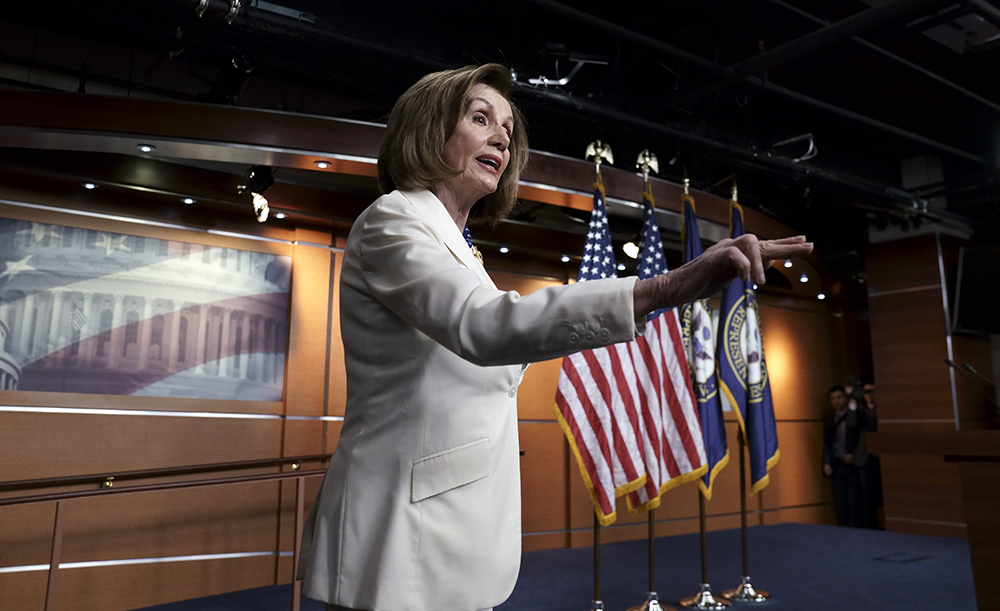
Speaker of the House Nancy Pelosi, D-Calif., responds forcefully to a question from a reporter who asked if she hated President Donald Trump, after announcing earlier that the House is moving forward to draft articles of impeachment against Trump, at the Capitol in Washington, Thursday, Dec. 5, 2019. (RNS/AP/J. Scott Applewhite)
The political atmosphere in our country has become so toxic that it becomes a news story when the speaker of the House says she does not hate the president.
"I don't hate the president," said Speaker Nancy Pelosi. "I pray for the president all the time."
Pelosi was responding to a reporter's question after she had announced that she was asking the House of Representatives to impeach the president. She was asked if she hates the president by a reporter who cited Rep. Doug Collins' statement that the Democrats are trying to impeach the president because they hate him. Collins, a Republican from Georgia, has been a staunch defender of President Donald Trump during the impeachment hearings.
Pelosi strongly rejected the question, which she saw as an insult to her faith and her upbringing.
"I don't hate anybody," responded Pelosi. "I was raised in a Catholic house. We don't hate anybody, not anybody in the world. Don't accuse me of hate."
Being accused of hatred was, in Pelosi's mind, the same as accusing her of being a bad Catholic.
"As a Catholic, I resent your using the word 'hate' in a sentence that addresses me," she said. "I don't hate anyone."
Advertisement
Hatred was not part of her upbringing, she said. "I was raised in a way that is a heart full of love."
On the contrary, she said, she always prays for the president. "I still pray for the president. I pray for the president all the time."
Pelosi's response was founded on Catholic theology and the Gospels. In the Sermon on the Mount, Jesus said, "Love your enemies, and pray for those who persecute you."
Or as the Gospel of Luke puts it: "Love your enemies, do good to those who hate you, bless those who curse you, pray for those who mistreat you."
In Catholic theology, you are not supposed to hate anyone, even those with whom you are at war. Yet the word "hate," and its reality, is ever present in American culture. People unite around their common hatreds as much as around their common loves. Political scientists note that it is easier to motivate people to vote through hatred than love.
Politics is supposed to be about the common good, the good of the community. It is supposed to be about what brings us together in a common cause, not what divides us into warring factions.
If we want better politics, prayer might be a good place to start. We could begin by asking for forgiveness for our hate, and then pray for those with whom we disagree. Being together on our knees before God should remind us that we are all God's children and we should act like it.




